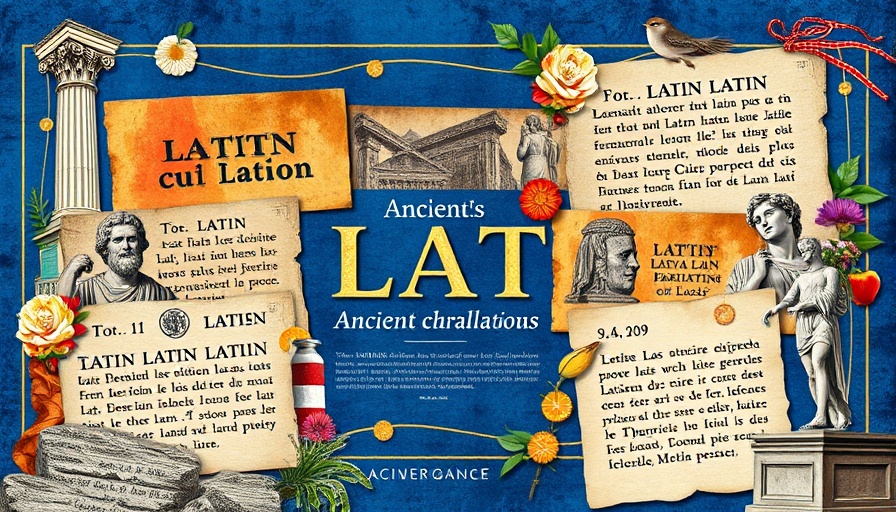
Transforming the Study of Ancient Languages
In a remarkable leap for archaeology and linguistics, Google DeepMind has introduced Aeneas, an innovative artificial intelligence program designed to aid historians in decoding ancient Latin inscriptions. This cutting-edge tool builds on the success of Ithaca, a previous AI that focused on Greek inscriptions, but Aeneas goes a step further by integrating advanced functionality that supports researchers in their workflows. The ambition behind Aeneas is clear: to connect historians with the past by transforming how they interpret fragmented texts.
How Aeneas Works
Aeneas utilizes deep learning to analyze partially preserved inscriptions, cross-referencing them with a vast database of nearly 150,000 Latin engravings from various historical sites spanning from modern-day Britain to Iraq. This capability allows Aeneas to generate hypotheses about missing words and phrases in damaged texts. For instance, when provided with a fragmentary inscription that starts with a common Latin phrase, Aeneas can suggest likely completions based on historical context, providing a window into ancient Roman society.
The Value for Historians
Historians often face the daunting task of piecing together fragmented historical data. Aeneas aims to alleviate this burden, offering a constructive tool that encourages deeper investigation rather than replacing human expertise in epigraphy. According to Yannis Assael, a researcher on the project, the intention is not to automate the field but rather to complement historians’ efforts, leading to enhanced creativity and accuracy in their analyses.
Successful Validation and Historical Impact
To validate the effectiveness of Aeneas, a study involving 23 historians was conducted, comparing their research processes with and without the AI. Results indicated a significant increase in research ideas generated—90% of the time, historians found Aeneas's suggestions beneficial, leading to more precise interpretations of inscription origins. Among the tested artifacts were the inscriptions of the famous Monumentum Ancyranum in Turkey, where Aeneas provided insightful estimates that aligned with established scholarly interpretations, further solidifying its utility.
Looking Ahead: AI in Historical Research
As technologies evolve, the role of AI in history and linguistics is becoming increasingly prominent. Aeneas demonstrates how emerging technologies have the potential to disrupt traditional methods in a field that relies heavily on meticulous handwork and scholarship. While Aeneas is tailored for Latin, there are potential implications for future research in other ancient languages, as the need for specialized tools becomes evident. The collaboration between historians and AI promises to usher in a new era of discovery within both archaeological and linguistic communities.
Actionable Insights for Modern Professionals
For professionals across industries—whether in technology, finance, healthcare, or sustainability—understanding and incorporating emerging technologies like AI can provide a competitive edge. As Aeneas illustrates, the integration of innovative tech can streamline workflows, enhance creativity, and ultimately lead to transformative outcomes. By keeping abreast of such developments, professionals can more effectively navigate the disruptive trends shaping their fields. The call to action is clear: engage with these technologies not just as users, but as key players in the future of innovation.
 Add Row
Add Row  Add
Add 




Write A Comment